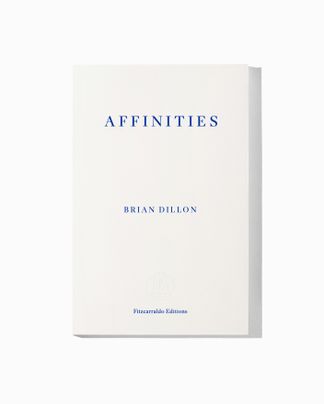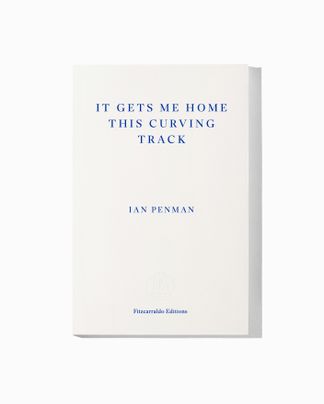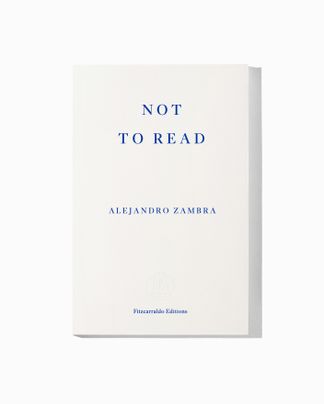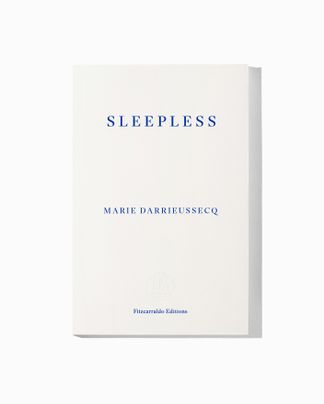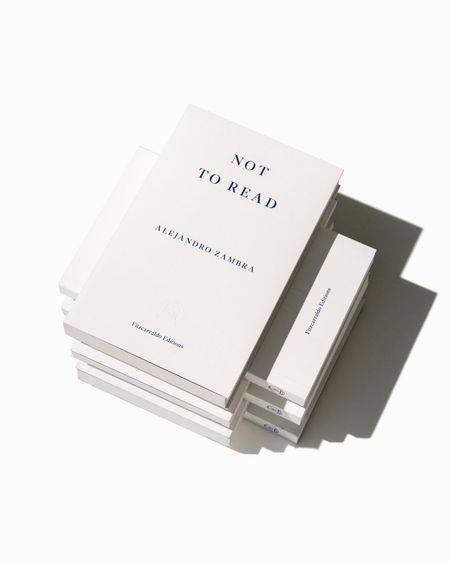In these essays, the acclaimed artist, photographer, writer, and filmmaker Moyra Davey often begins with a daily encounter – with a photograph, a memory, or a passage from a book – and links that subject to others, drawing fascinating and unlikely connections, until you can almost feel the texture of her thinking. While thinking and writing, she weaves together disparate writers and artists – Mary Wollstonecraft, Jean Genet, Virginia Woolf, Janet Malcolm, Chantal Akerman and Roland Barthes, among many others – in a way that is both elliptical and direct, clearheaded and personal, prismatic and self-examining, layering narratives to reveal the thorny but nourishing relationship between art and life.
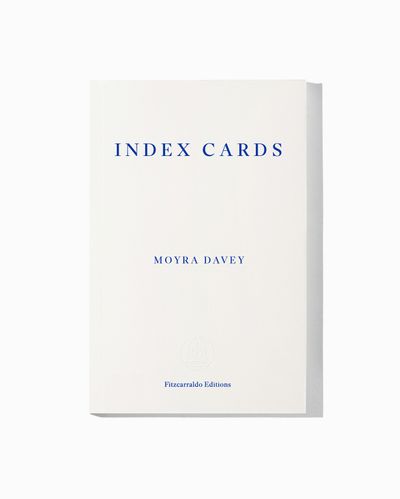
Index Cards
French paperback with flaps, 264 pages
Published 3 June 2020
Index Cards
FIFTY MINUTES
THE FRIDGE
I had a houseguest once who told me that all of his cooking was about managing his fridge. I don’t remember the man’s name, but I did retain from him that expression, and even though I don’t cook per se . . . [narrator forgets her lines, begins again from the top], I think of a fridge as something that needs to be managed. A well-stocked fridge always triggers a certain atavistic, metabolic anxiety, like that of the Neanderthal after the kill, faced with the task of needing to either ingest or preserve a massive abundance of food before spoilage sets in.
I get an unmistakable pleasure out of seeing . . . [long pause; narrator again forgets her lines; off-screen voice tells her to wait five seconds and start over] the contents of the fridge diminish, out of seeing the spaces between the food items get larger and better defined. This emptying out reminds me of the carcasses being eaten away by maggots in Peter Greenaway’s film A Zed and Two Noughts. He uses time-lapse photography to show an animal carcass wither away before our eyes until all that’s left is clean white bone. That is my aim with the fridge: to be able to open it and see as much of its clean, white, empty walls as possible.
Once every ten days or so the fridge fills up with food and the Sisyphean cycle of ordering and chewing our way through it all begins anew. This rodentlike behavior is my metaphor for domestic survival: digging our way out, either from the contents of the fridge, or from the dust and grit and hair that clog the place; or sloughing our way through the never-ending, proliferating piles of paper, clothing, and toys.
Recently I read about a writer getting rid of four thousand books and hundreds of CDs, and emptying three closets full of clothes, and it made me think of how much we pad our lives with this stuff.
BOOKS
I feel a little towards my books as I do towards the fridge, that I have to manage these as well, prioritize, determine which book is likely to give me the thing I need most at a given moment. But unlike with the fridge, I like to be surrounded by an excess of books, and to not even have a clear idea of what I own, to feel as though there’s a limitless store waiting to be tapped, and that I can be surprised by what I find.
I spend most of my time trolling through a half a dozen or so books, all the while imagining there’s another one out there I should be reading instead, if I could only just put my finger on it. Often I find the spark where I least expect it, in a book I may have been reading casually, lazily, wondering why I am even bothering to read it. Sometimes I persist with a book, even just through inertia, and it can happen that the writing will suddenly open itself up to me.
[Narrator has been roaming through Pete’s Barn, a giant junk store in upstate New York, speaking into the camera mic. She asks: “Do I remind you of Geraldine Chaplin in Nashville?”]
[Short interlude in which narrator is seen blowing dust from her books]
ANALYSIS
[“Shhhhh.” Narrator attempts to silence others in the room, who chime in, “shhhhh.”]
I started my analysis when I lived in Brooklyn. I’d take the L train to Union Square and then the 6 to 86th Street. From there it was a short walk to my analyst’s office on Madison Avenue. As I approached Dr. Y’s building I’d scan the sidewalks for his small, compact frame, since he often arrived for my appointment just before I did. Once I spotted him in profile walking down the avenue—he was holding a paper bag just under his chin and putting food in his mouth. Another time, even more unsettling since I wasn’t even in his neighborhood, we found ourselves eye to eye, a mere ten feet apart, me standing on the Uptown platform at Grand Central, and him staring out at me from the window of the express train.
But if I happened to catch sight of him anywhere near his building, rather than enter the lobby and risk having to ride up in the elevator together, I’d circle the block. These near encounters were enough to throw into question the entire analysis, and to ratchet up the level of self-consciousness to a nearly unbearable degree. I also felt conspicuous walking past his doorman five days a week at exactly the same hour.
Once I had crossed the threshold into the waiting room I would take a seat on the couch, or if someone already happened to be there I’d sit in the black-and-gold Harvard chair and wait for the moment when Dr. Y would appear to welcome me into his office. It was all very ritualistic and formal.
(…)
‘Her work is steeped in literature and theory without being deformed by contemporary iterations of such. I have a deep admiration of her as an artist, writer, thinker and person.’
— Maggie Nelson, Artforum
‘A rich anthology of ideas, broad in its scope, and undoubtedly rewarding.’
— Daniel Baksi, The Arts Desk
‘The essays in Index Cards gather and swell with invisible force, disperse and settle like the dust Davey blows from the tops of her books.’
— Emily LaBarge, Bookforum
‘Erudite, subtle, daring thoughts about film and photography, text and image, art and life.’
— Brian Dillon, 4Columns
‘What a lark to have a writer with such a shrewd and multifaceted imagination be themselves the subject of inquisition. This sinewy collection is for ardent fans of Davey and newcomers alike.’
— Irish Times
‘In these difficult and uncertain times, to borrow a phrase from half of the emails sent in 2020, no mode of reading could be more urgent.’
— Review 31
‘Her formal, deadpan, off-kilter sensibilities celebrate the worries of a writer, and she will catch you off guard with her smudged, elegant, low-tech intelligence. Just look around where you live and you will see what she sees – tiny, lovely still lifes of neglect that demand respect. It may take you a while to notice, but she’s the real thing.’
— John Waters
‘She writes as if there were no flesh between her mind and her hand, and reading her feels like chatting to a longtime friend, the conversation switching organically from maternity to literature simply because you have discussed these subjects so many times before.’
— Art Agenda
‘On screen the many turns her ideas take can induce a kind of mental vertigo; on the page, it is a pleasure to have the time to follow each volute of thought slowly, with the attention it requires.’
— Times Literary Supplement
‘Davey has constructed a practice conscious of its own past and reliant on radical self-doubt. Her photographs, films, and essays cross-reference and depend on one another as she makes a subject of her own process and its intentions, fears, and failures.’
— Paris Review
‘She seems to perpetually glance back in order to look forward. This propagates the incestuous slant in her practice, where the work in one medium is taken up in another. Davey follows the dérive – welcoming the accident, the slippage, the digression, the drift.’
— The Believer
‘This is a gem of a book. Davey is an artist, photographer, writer and filmmaker, and the book takes on the quality of exactly what the title infers – blurbs on index cards, perfect for picking up and putting down. This format is especially appealing with our attention spans pulled in so many different directions at once. The ground she covers, the connections she makes, and the stream of consciousness of her essays is inspiring.’
— Gena Brady, Buzzfeed
‘Erudite, irreverent and intensely personal, Index Cards is a collection of essays from the celebrated photographer, filmmaker and writer Moyra Davey. Combining immediacy and retrospection, the collection forms a fragmentary autobiography of Davey and her artistic trajectory. The essays circle one question: how an artist creates, and at what cost.’
— Julia Tanner, Source Magazine
‘Index Cards is an essential portrait of an artist wide open to the world and ever-in-formation: reading (always reading, the undertow of her practice), looking, suffering, talking, loving – preparing to make work and risking the making of it. I could not put it down.’
— Kate Briggs, author of This Little Art
‘Moyra Davey is a genius of the aleatory. With this collection, perfectly titled Index Cards, hopefully Davey will finally be positioned within her rightful peers – the note-like lectures of Roland Barthes, the talks of Anne Carson, the strange essays of Susan Howe, the collage spaces of Chris Kraus, the uncanny digressions of W. G. Sebald.’
— Kate Zambreno, author of Drifts
‘Moyra Davey’s writings are intense meditations on desire and knowledge, limits and wellness, domestic life, literature, traces and art: a life of the body and mind. Originally written in tandem with her photography and video work, these pieces both narrate and propel her artistic process. The art world has long known that Moyra Davey is one of the most interesting, challenging and sincere contemporary writers. Now others will know it too.’
— Chris Kraus, author of I Love Dick
‘I read Moyra Davey in an agitated, mobile, excitable state, stopping often to write in my notebook, to copy out passages, to pull other books from my shelf, to think. Her forms include the diary, the fragment, the photograph, the inventory, and her approach is slantwise, glancing, generous in its reticence. She is a rare writer who is able to articulate the mystery, pleasure, and generative magic of art while simultaneously creating that mystery, pleasure, and generative magic in her own work.’
— Kathryn Scanlan, author of The Dominant Animal
‘Index Cards is, at its core, a wonderfully meandering compilation of texts about forgiveness and travel. Forgiveness for reading in a distracted state, when deep concentration is broken by the hiss of boiling water or wrestling a baby toy away from the dog or by the need to look up an unknown reference. Forgiveness for reading things that are out of fashion, trashy, or not connected to some ‘project.’ It is also a compilation about the blurred line between the wandering mind and traveling through physical space; the way the act of reading transports the reader to a place that is sometimes that of the reader’s own experience and sometimes one that the text provides. And the work of the writer, Davey posits, is to provide paths to both.’
— Lisa Oppenheim
Moyra Davey is a New York-based artist whose work comprises the fields of photography, film and writing. She has produced several works of film, most recently i confess (2019), which will premiere in North America at the Museum of Modern Art. She is the author of Burn the Diaries, The Problem of Reading, and is the editor of Mother Reader: Essential Writings on Motherhood. Her work is held in major public collections, including the Museum of Modern Art and the Metropolitan Museum of Art in New York, and Tate Modern in London. She is a 2020 recipient of the John S. Guggenheim Memorial Foundation Fellowship.

